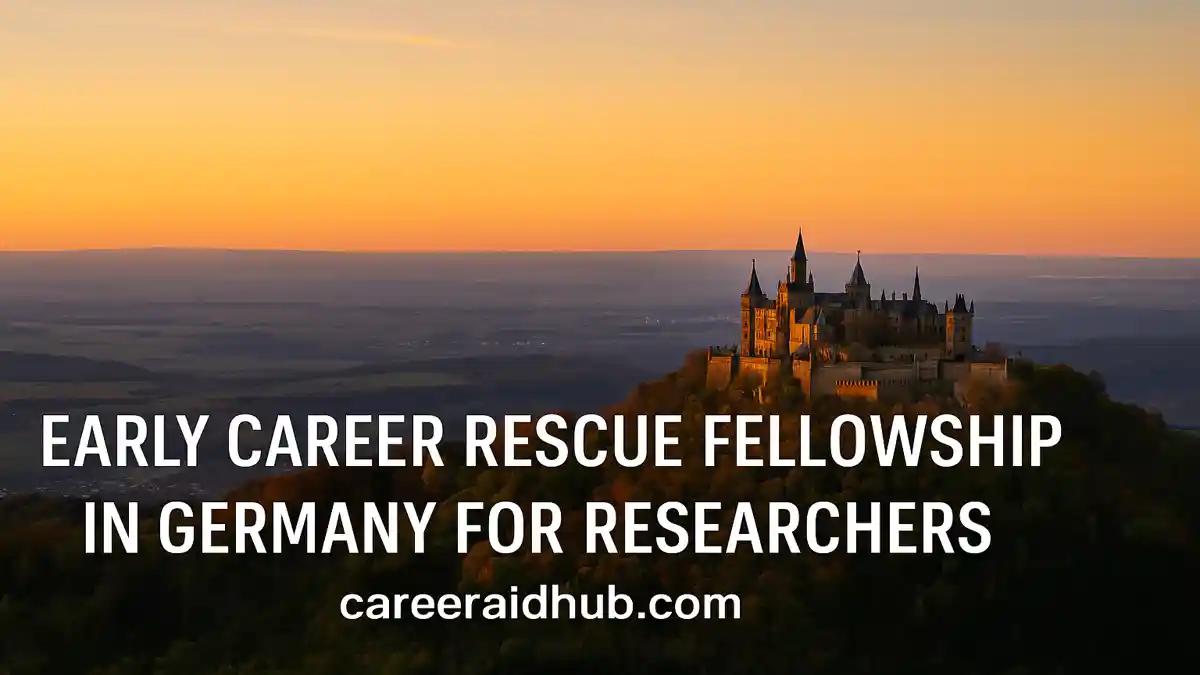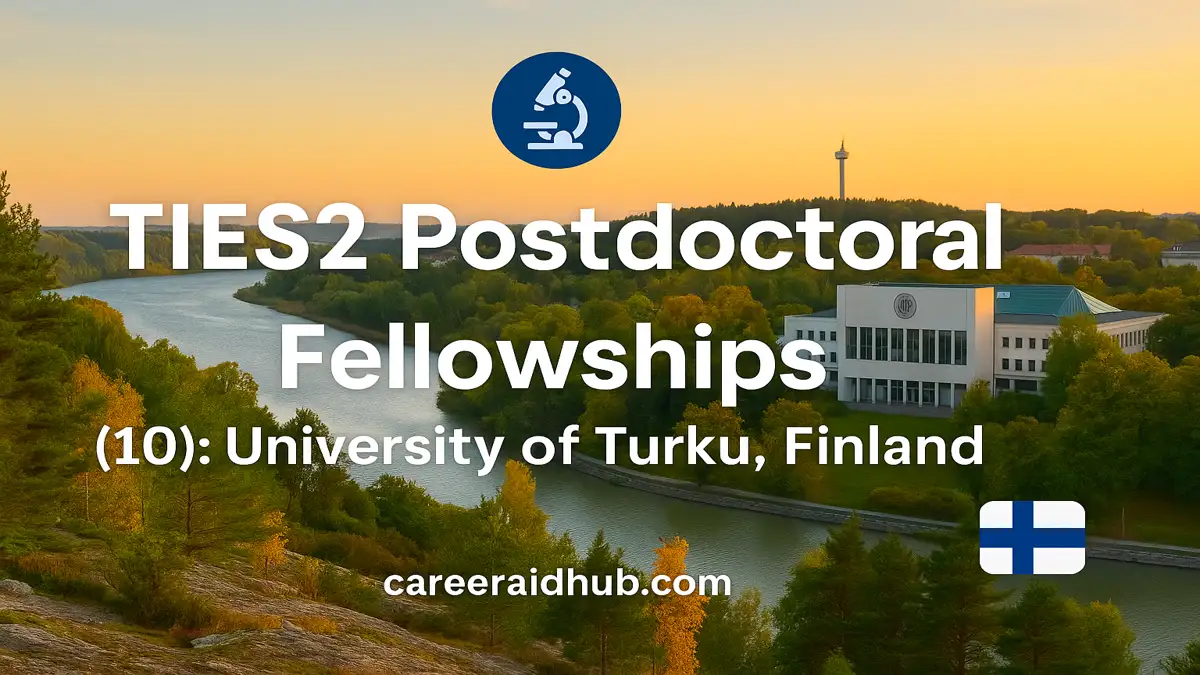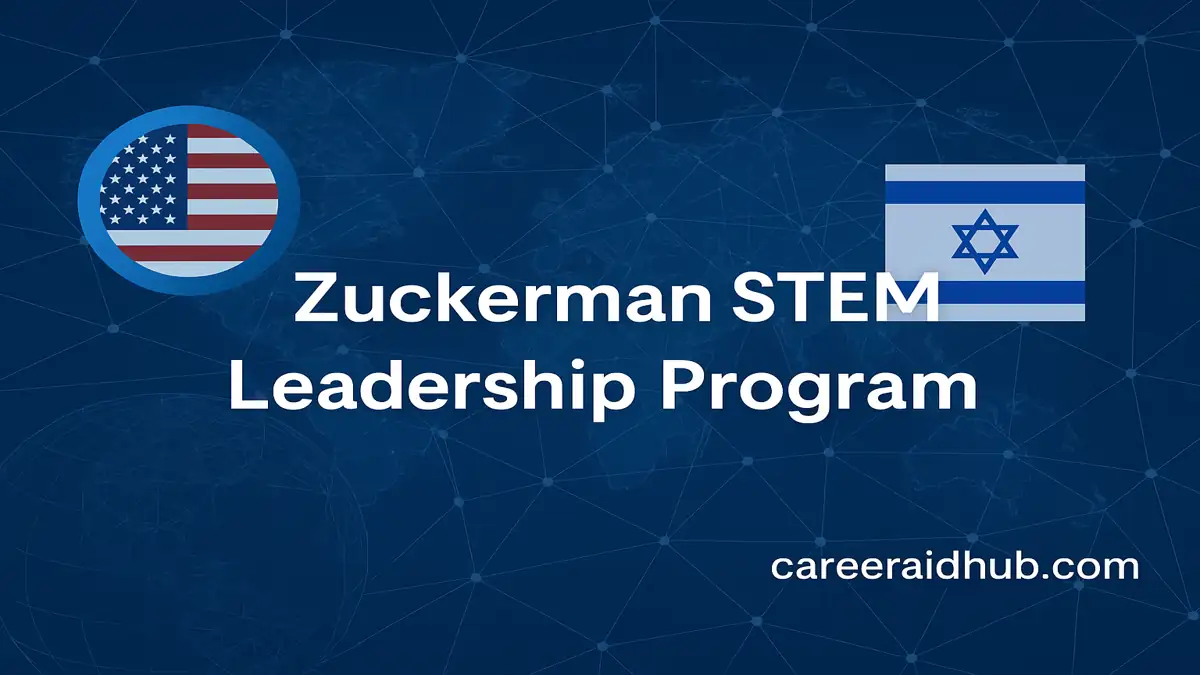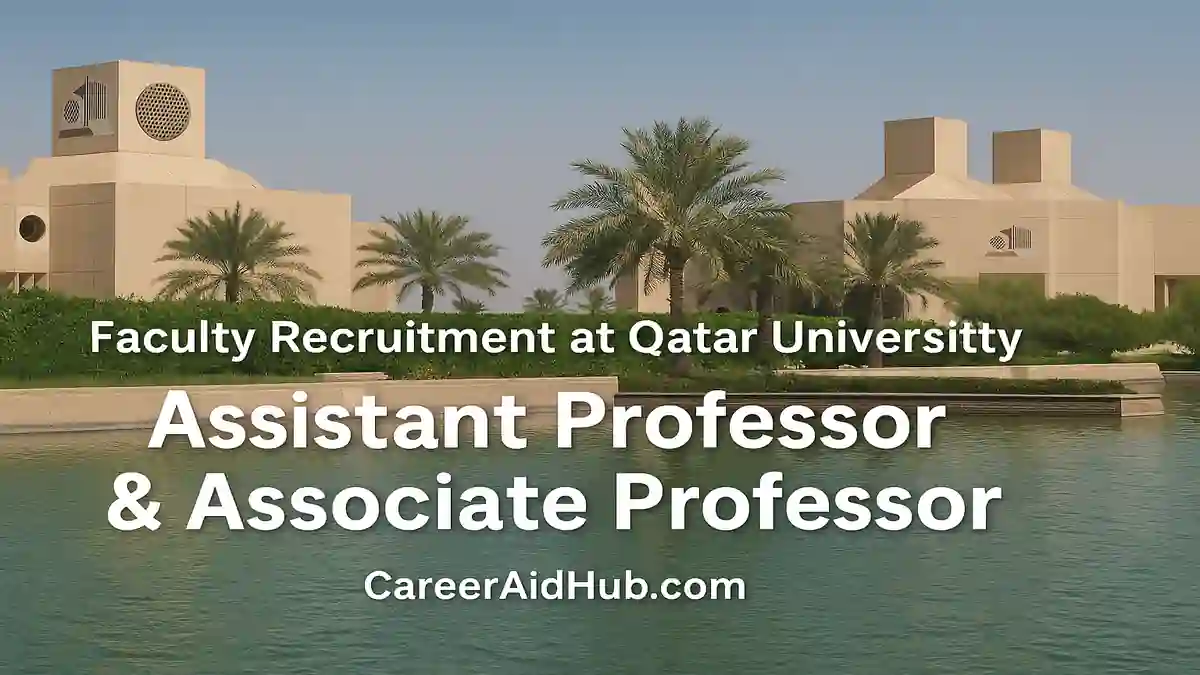Academic freedom is under visible strain in many parts of the world, including the United States. When political pressure constrains research, early-career scholars may abruptly lose access to laboratories, funding, data, or even the basic conditions required to work safely. As a result, many find their long-term academic prospects at serious risk.
The Early Career Rescue Fellowship is a targeted postdoctoral rescue programme in Baden-Württemberg, Germany, for early-career researchers based in the USA whose academic work faces political pressure. It offers secure funding, institutional protection, and world-class research environments so scholars can continue their projects and strategically rebuild their academic careers.
The Early Career Rescue Fellowship offers a concrete, structured response to this situation. By creating secure, well-funded “rescue havens” in Germany’s state of Baden-Württemberg, this postdoctoral rescue fellowship enables at-risk researchers to resume their work, regain stability, and develop new international career trajectories. Hosted jointly by the Freiburg Institute for Advanced Studies (FRIAS), the Tübingen College of Fellows (CoF), and the Zukunftskolleg at the University of Konstanz, the programme gives selected postdoctoral researchers time, space, and institutional backing to continue their research in a supportive, internationally recognised environment.
What Is the Early Career Rescue Fellowship?
The Early Career Rescue Fellowship is a dedicated track within the Baden-Württemberg Early Career Rescue Fellowships 2026–2028, funded by the State of Baden-Württemberg. It is explicitly designed for early-career researchers whose ability to
This postdoctoral rescue fellowship offers 14 funded positions, each with a duration of two years. Successful candidates are hosted at one of three leading research universities in Baden-Württemberg:
-
- University of Konstanz (Zukunftskolleg)
- University of Freiburg (FRIAS)
- University of Tübingen (College of Fellows)
At its core, the programme pursues two closely linked goals:
-
- To provide immediate, safe working conditions for researchers whose academic freedom has been curtailed and who can no longer pursue their projects in the USA.
- To open up international career prospects by embedding fellows in world-class, interdisciplinary research environments that support long-term development.
By combining institutional protection, reliable funding, and structured mentoring, the Early Career Rescue Fellowship functions both as a short-term lifeline and as a bridge to a more secure academic future for early-career researchers under political pressure.
Host Institutions and Research Environment
Each fellow is hosted by one of the three partner universities, all of which participate in Germany’s Excellence Strategy and
Freiburg Institute for Advanced Studies (FRIAS)
The Freiburg Institute for Advanced Studies (FRIAS) at the University of Freiburg is a well-established Institute for Advanced Studies (IAS). It is known for its interdisciplinary research clusters, thematic fellow groups, and vibrant international community. Fellows at FRIAS benefit from:
-
- Regular colloquia and lecture series across disciplines
- Access to researchers in the humanities, social sciences, natural sciences, and life sciences
- A structured support system that encourages collaborative, high-level research
The academic atmosphere actively encourages intellectual exchange and experimentation, making FRIAS attractive for scholars who want to reposition their work and develop new research directions in Germany.
Tübingen College of Fellows (CoF)
The Tübingen College of Fellows (CoF) at the University of Tübingen connects researchers through thematic programmes, joint events, and cross-disciplinary formats. As one of Germany’s oldest universities, Tübingen combines deep academic traditions with forward-looking research agendas. Fellows hosted at CoF can expect:
-
- Close links to departments and research centres across theuniversity
- Opportunities to participate in workshops, conferences, and reading groups
- An inclusive environment where scholars from different countries and disciplines collaborate
- Close links to departments and research centres across the
This setting is particularly valuable for early-career researchers who want to broaden their networks, participate in international projects, and engage with new scholarly communities.
Zukunftskolleg, University of Konstanz
The Zukunftskolleg at the University of Konstanz focuses on early-career researchers, offering independent fellowships, structured mentoring, and an international, interdisciplinary community. It is designed as a “creative space” in which postdocs can develop their own research profile with minimal administrative burden. Fellows benefit from:
-
- Freedom to pursue independent, self-directed projects
- Tailored mentoring from senior academics in relevant disciplines
- Peer exchange with other postdoctoral fellows working across a wide range of fields
Across all three institutions, rescue fellows become part of established IAS communities. They gain access to seminars, workshops, professional development opportunities, and extensive networking formats that support both their research and broader career plans as postdoctoral scholars in Germany.
Eligibility Criteria
The Early Career Rescue Fellowship is designed specifically for early-career researchers whose work in the USA is restricted by political pressure. To be competitive, applicants must demonstrate both academic excellence and clear evidence that their ability to conduct research has been compromised in their current setting.
Key eligibility conditions include:
-
- Careerstage: Applicants must have at least one year and no more than seven years of postdoctoral research experience at the time of application. This requirement ensures that the fellowship targets scholars in the early stages of building an independent research career.
- Discipline: All academic fields are eligible, provided they are represented at one of the three host universities. This includes humanities, social sciences, natural sciences, engineering, and life sciences.
- Research situation in the USA: Applicants must show that they cannot conduct or continue their work appropriately in the USA due to political pressure. This may involve restrictions on research topics, interference with funding, loss of access to facilities, institutional sanctions, or credible threats to personal safety.
- Career
What the Fellowship Offers: Funding and Support
The Early Career Rescue Fellowship offers far more than a basic salary line. It combines secure employment with a robust package of research and career support so that fellows can rebuild their work under safe and predictable conditions in Germany.
Key elements include:
-
- A two-year research position at one of the three partner universities in Baden-Württemberg
- A salary up to pay grade E14, a senior postdoctoral scale in the German public sector, including social and health insurance contributions
- Full access to local departmental structures, such as laboratories, libraries, data infrastructures, and regional research networks
- Integration into the IAS community (FRIAS, CoF, or Zukunftskolleg), which typically offers:
- Interdisciplinary colloquia, lecture series, and workshops
- Mentoring by senior scholars and experienced fellows
- Professional development activities on topics such as grant writing, leadership, academic communication, and career planning
- Opportunities for international networking and collaboration across disciplines and institutions
The aim is to give fellows the stability needed to re-establish their research agendas, develop new collaborations in Europe and beyond, and prepare for subsequent steps such as tenure-track applications, ERC proposals, or DFG-funded projects. As a result, the Early Career Rescue Fellowship supports both immediate security and long-term career development.
Application Process and Deadline
Applications are submitted through the central online application platform of the University of Konstanz. The official call highlights two central resources that every applicant should consult before starting the process:
-
- The Programme and Application Manual, which explains eligibility, evaluation criteria, and required documents in detail.
- The online application form, which must be completed and submitted via the platform before the stated deadline.
For the current call:
-
- Application deadline: 9 January 2026, 11:00 AM (CET)
- Fellowship period: Possible start dates between July 2026 and November 2028
Typical application components include:
-
- A detailed research proposal outlining objectives, methods, theoretical framework, and expected outcomes over the two-year period
- A curriculum vitae with publications, research experience, and evidence of postdoctoral work
- A statement explaining how political pressure in the USA has affected your ability to conduct research, including specific examples and documentation where available
- An indication of host preference and a clear explanation of how your project fits relevant departments, research groups, or centres at FRIAS, CoF, or the Zukunftskolleg
Because documentation requirements are strict and some materials take significant time to prepare, applicants should read the manual carefully and begin assembling their portfolio well in advance of the deadline. Careful planning strengthens both the quality of the application and the overall competitiveness of the proposal.
Tips for a Strong Application
To maximise your chances in a competitive selection process, it is important to approach the Early Career Rescue Fellowship application strategically, with clarity and detail.
-
Be Precise About Your Situation
Explain in concrete terms how political pressure in the USA restricts your work. Provide specific examples of blocked research topics, cancelled or withdrawn funding, restricted access to facilities, or threats affecting your safety or ability to publish. Avoid vague or purely general statements and focus on verifiable circumstances.
-
Show a Feasible, Ambitious Project
Design a research project that is both ambitious and realistic within a two-year timeframe. Highlight how the resources, mentors, and networks available in Baden-Württemberg will enable work that cannot be pursued in your current environment. Clarify the main research questions, methods, expected outputs, and how your project will contribute to your field.
-
Demonstrate Institutional Fit
Study the profiles of FRIAS, CoF, and the Zukunftskolleg, as well as related departments at each university. Then explain why your project belongs at your preferred host, referring to specific research groups, centres, or infrastructures that would support your work. A strong case for institutional fit can significantly strengthen your application.
-
Highlight Your Trajectory
Show that you are on a strong upward trajectory as a scholar. Emphasise your most important publications, grants, and collaborations, and make clear how the fellowship will strengthen your long-term career plans. This might include goals related to future academic positions, major grant applications, or establishing a research group in Europe or elsewhere.
Why the Early Career Rescue Fellowship Matters
The Early Career Rescue Fellowship responds to an increasingly urgent global challenge: protecting academic freedom and supporting scholars at risk. Political interference in research can derail individual careers, disrupt entire fields, and undermine the basic conditions of open inquiry. Early-career researchers are particularly vulnerable, as they often lack the security, networks, and resources to withstand such pressure.
Quick Summary Table
|
Feature |
Details |
|
Program Name |
Baden-Württemberg Early Career Rescue Fellowships – Early Career Rescue Fellowship track |
|
Host Country |
Germany – State of Baden-Württemberg |
|
Host Institutions |
Freiburg Institute for Advanced Studies (FRIAS), Tübingen College of Fellows (CoF), Zukunftskolleg – University of Konstanz |
|
Duration |
2 years (postdoctoral fellowship) |
|
Study / Work Mode |
Full-time, research-focused postdoctoral position |
|
Eligibility (Core) |
Early-career researchers with 1–7 years of postdoctoral experience whose academic work in the USA is restricted by political pressure |
|
Fields of Study |
All disciplines represented at the three host universities (Humanities, Social sciences, Natural Sciences, Engineering, Life Sciences, etc.) |
|
Financial Support |
Employment on German public-sector scale up to pay grade E14, approx. €6,000 pre-tax per month plus social and health insurance contributions |
|
Number of Fellowships |
14 postdoctoral positions in the Early Career Rescue Fellowship track |
|
Fellowship Period |
Start dates between July 2026 and November 2028 (within the official fellowship window) |
|
Application Deadline (current call) |
9 January 2026, 11:00 (CET) – candidates must apply via the central online platform of the University of Konstanz |
|
Official Website |
Frequently Asked Questions (FAQs)
The Early Career Rescue Fellowship is a postdoctoral programme in Baden-Württemberg that supports researchers from the USA facing political pressure, providing salary, research infrastructure, mentoring, and a safe academic environment.
Eligible applicants are early-career researchers with roughly one to seven years of postdoctoral experience, whose academic work in the USA is restricted by political pressure or direct interference.
Yes, the fellowship is open to all disciplines represented at the three host universities, including humanities, social sciences, natural sciences, engineering, and life sciences, provided there is a suitable departmental fit.
Fellows usually receive a salary up to pay grade E14 in the German public sector, plus standard social and health insurance contributions, ensuring financial security while they rebuild their research careers.
Applications generally need a research proposal, curriculum vitae, publication list, statement on political pressure in the USA, and a justification of host preference, alongside any additional materials requested in the call.
You should describe concrete incidents, such as blocked topics, cancelled funding, restricted access, or threats, and provide any available emails, letters, or institutional decisions that clearly demonstrate interference.
You may indicate a preferred host institution, but final placement depends on academic fit, capacity, and committee assessment across the three universities.










